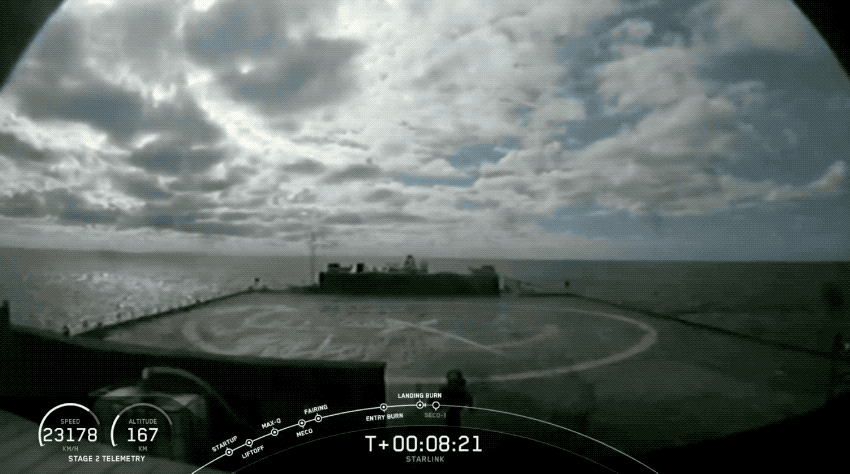INSUBCONTINENT EXCLUSIVE:
SpaceX successfully launched its first batch of production Starlink satellites today, sending 60 of the small satellites to their target
orbit aboard a Falcon 9 rocket
These 60 satellites follow 60 launched in May, but whereas those, and two launched last year, were for testing purposes, this new batch is
the first in a series of launches that will ready the constellation for providing internet service to consumers.
The launch took place at
Cape Canaveral in Florida, and the Falcon 9 rocket used included a booster stage that has flown not once, not twice — but three times
This is its fourth use, which is a record for SpaceX
What more, SpaceX recovered the booster via controlled landing on its seafaring drone ship &Of Course I Still Love You& in the Atlantic
Ocean, which means it possible the booster could be turned around and re-used still another time — they&re designed to support up to 10
flights in total.
That not the only record for this launch, and for SpaceX re-usable rocketry program in general: This flight used a
previously flown fairing for the first time ever (for any rocket company) during this mission
This fairing was flown during the Falcon Heavy Arabsat-6A mission that happened in April
Re-flying the fairing could save SpaceX around $6 million per launch, per estimates CEO Elon Musk has previously shared.
SpaceX had also
originally sought to recover the fairing, or protective covering used to shield the payload of Starlink satellites on its way out of Earth
The plan was to catch both halves using ocean-based catcher ships designed for the purpose, dubbed &Ms
Chief,& but conditions rendered that attempt impossible for this particular launch.
As for Starlink, SpaceX is looking to as many as tens of
thousands of satellites to populate its broadband-beaming connectivity network
The goal is to operate a global constellation that provides connectivity via orbital satellites handing off connections to one another as
they circle the globe — a different approach from current geostationary satellite connectivity, in which few large satellites essentially
sit over one part of the Earth and provide connections just to that region.
Elon Musk tweeted earlier this year using a connection provided
by a Starlink satellite for the first time, and the company aims to launch service for customers in the U.S
and Canada following six total launches of Starlink satellites like this one, with service expanding globally after a planned 24 similar

